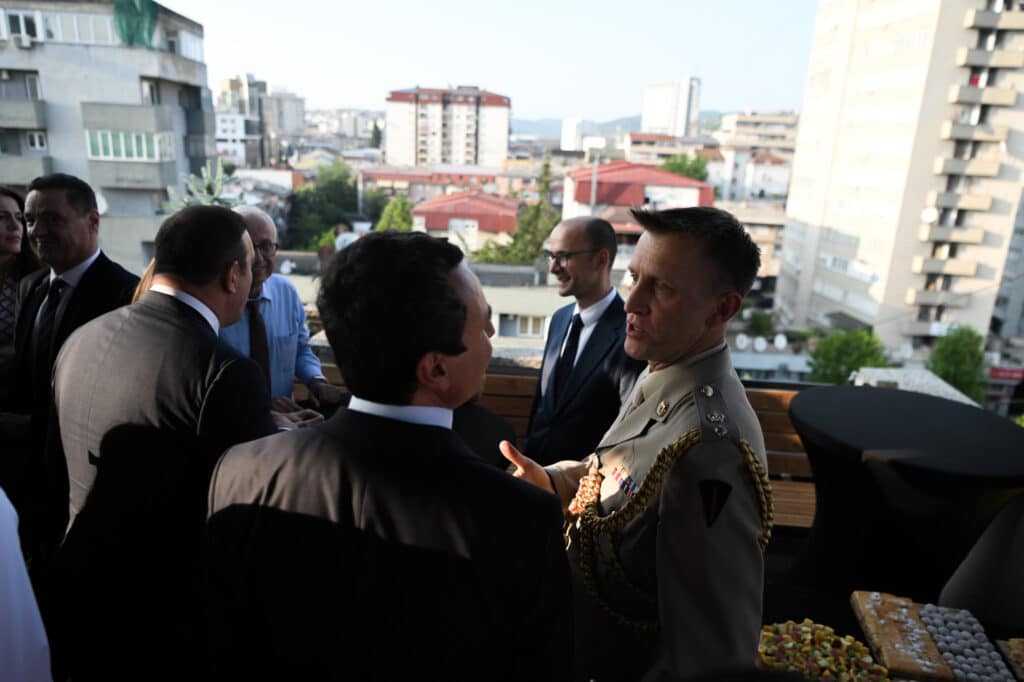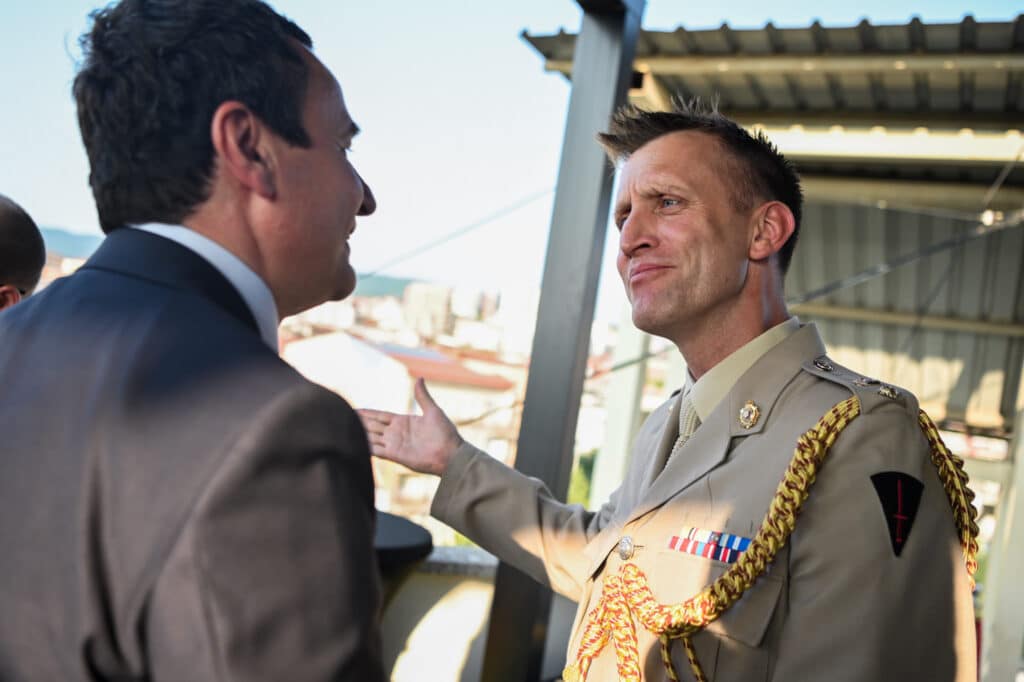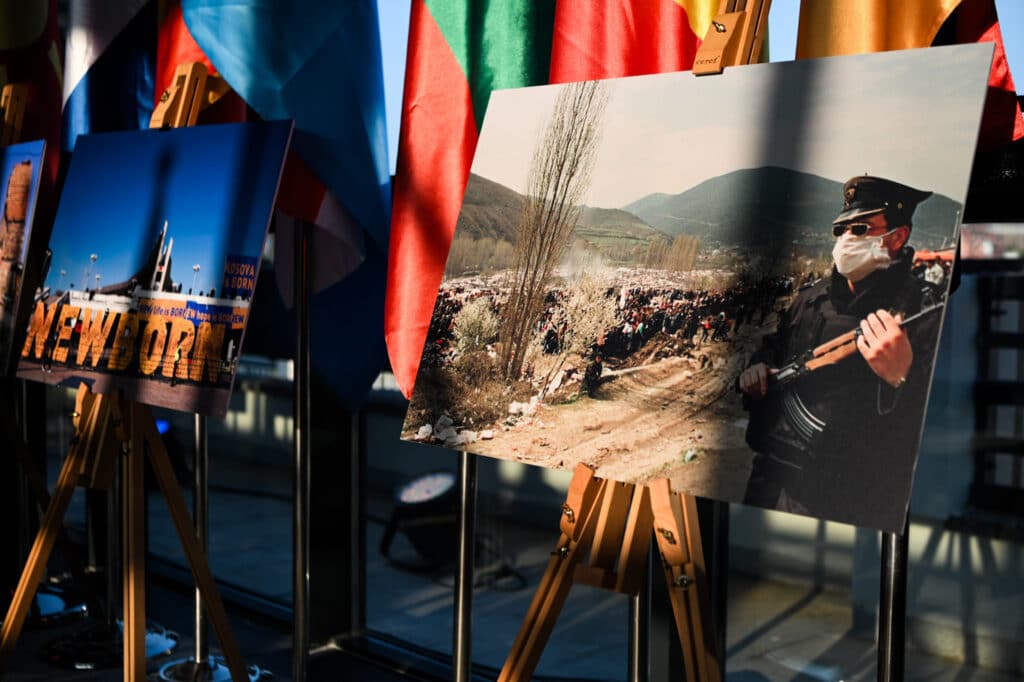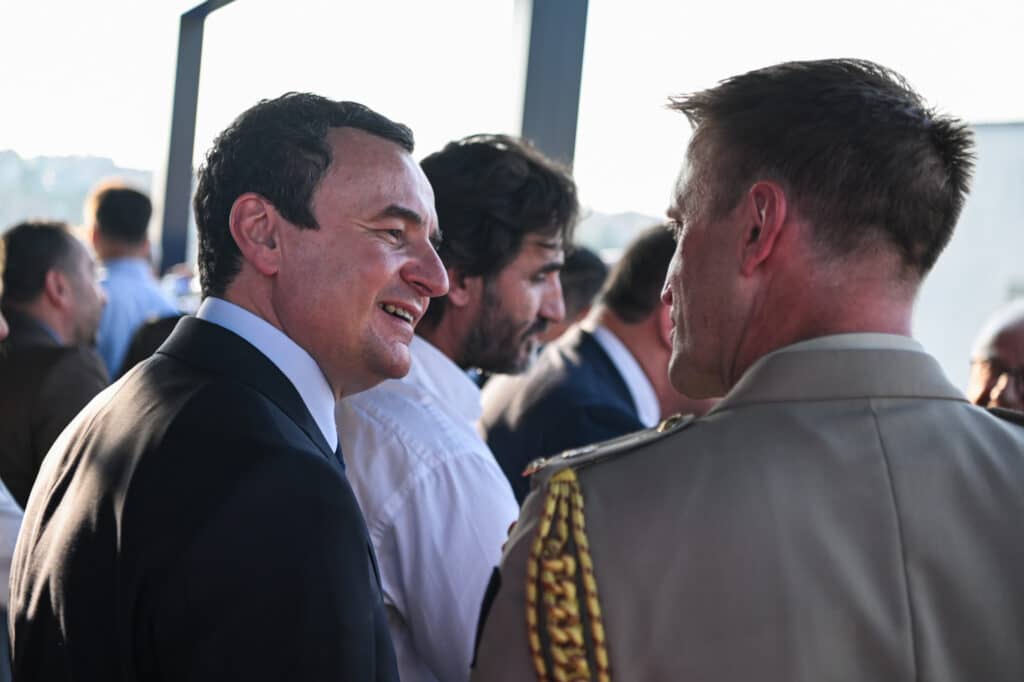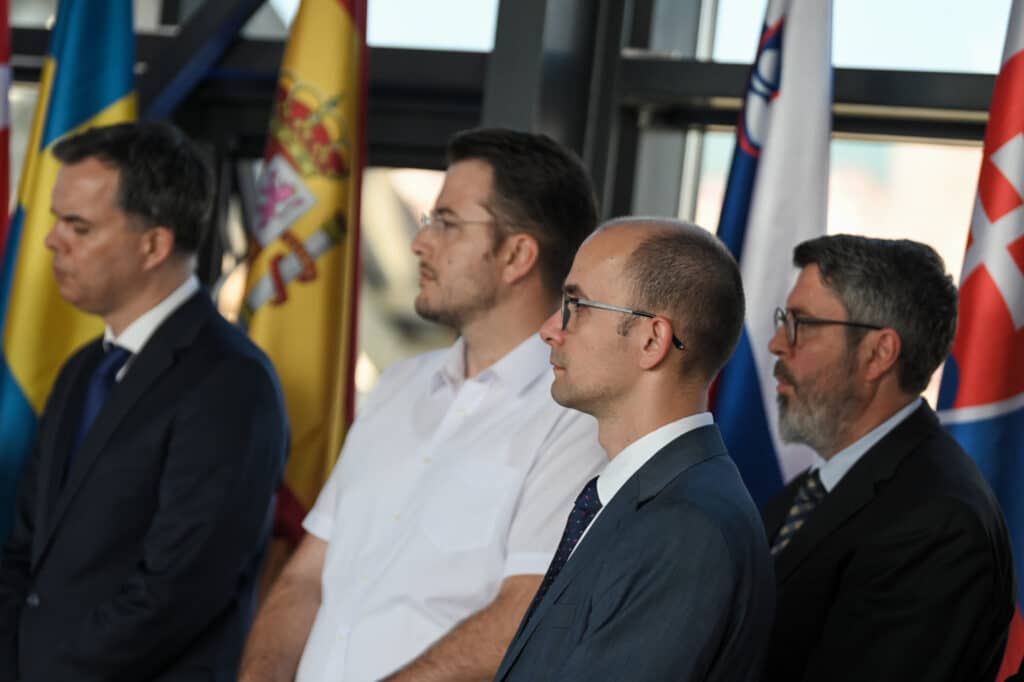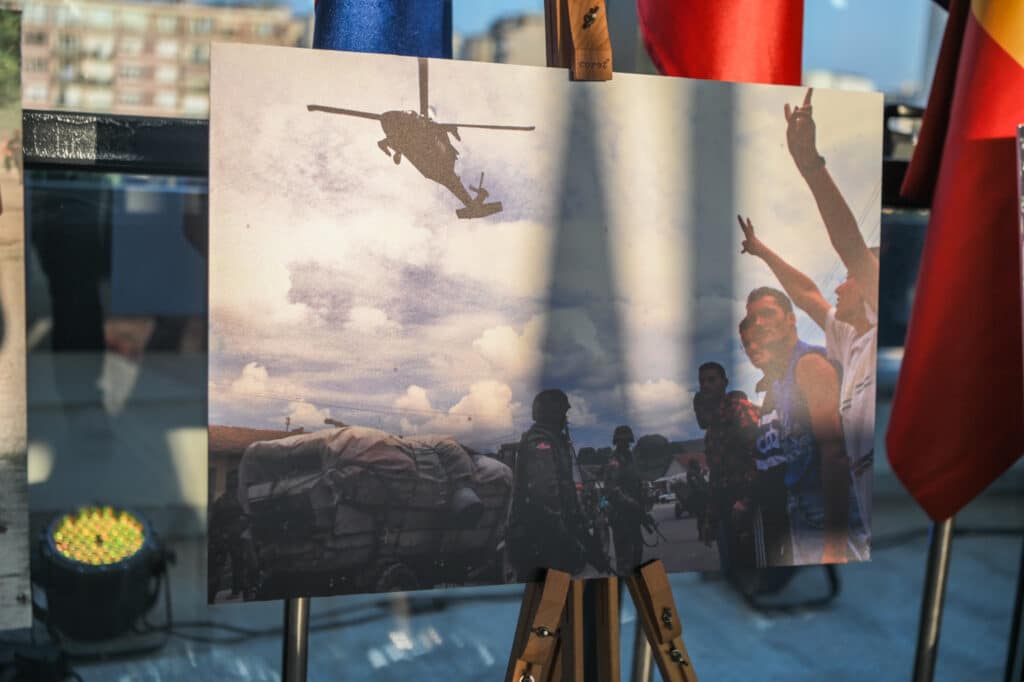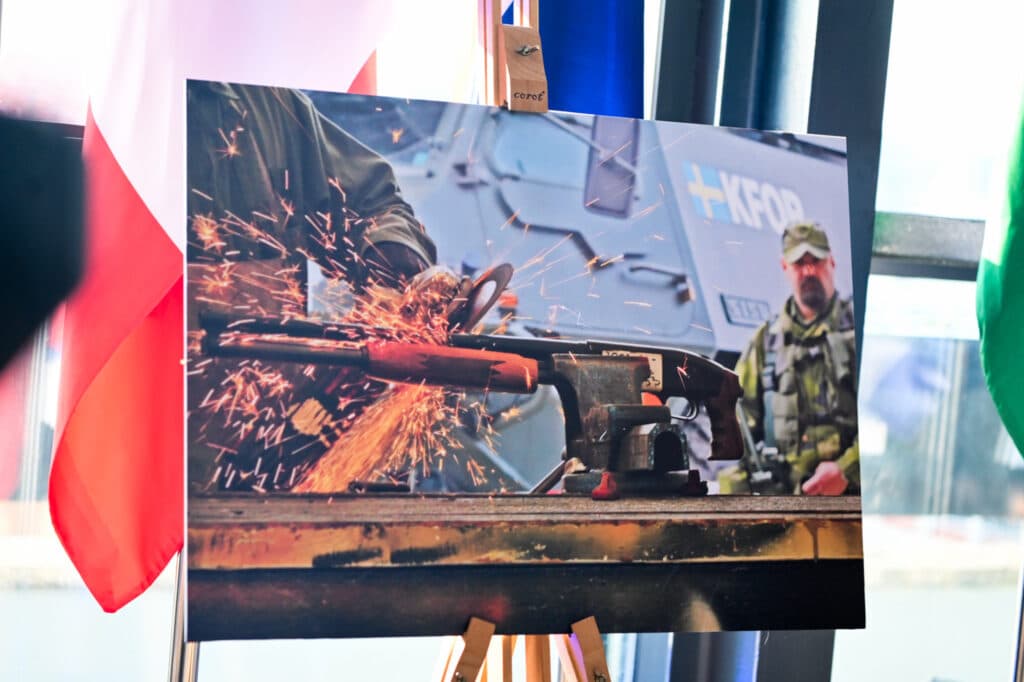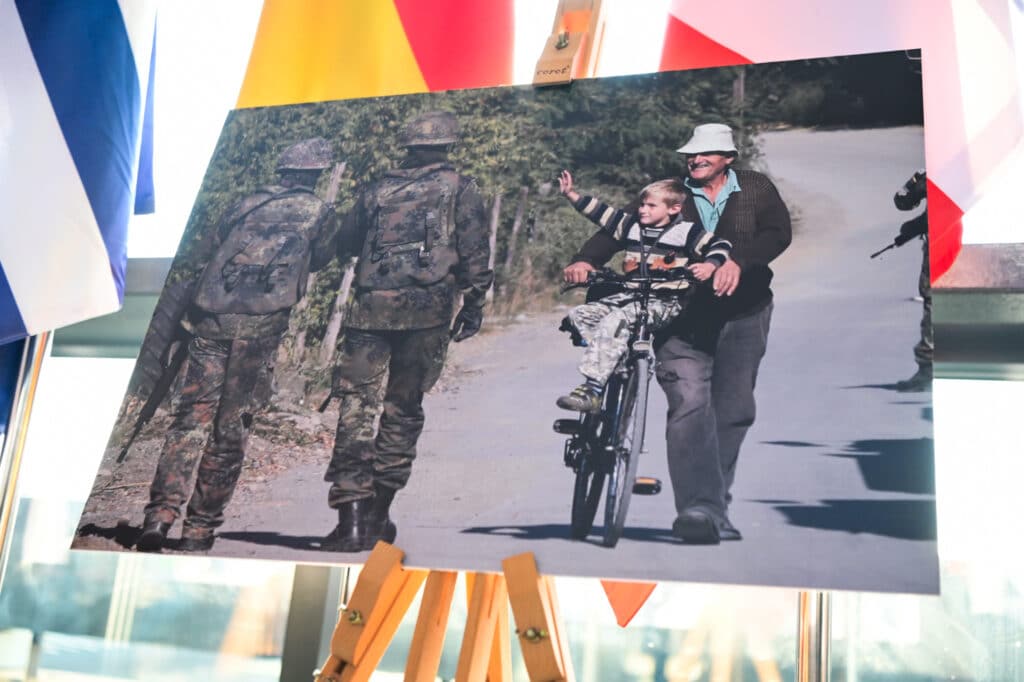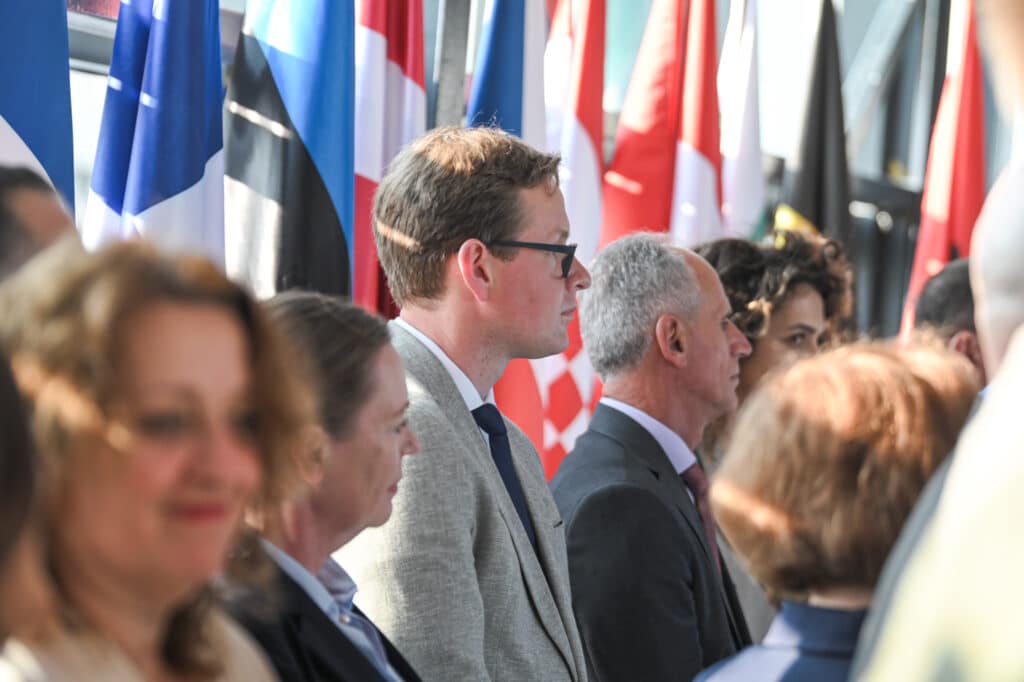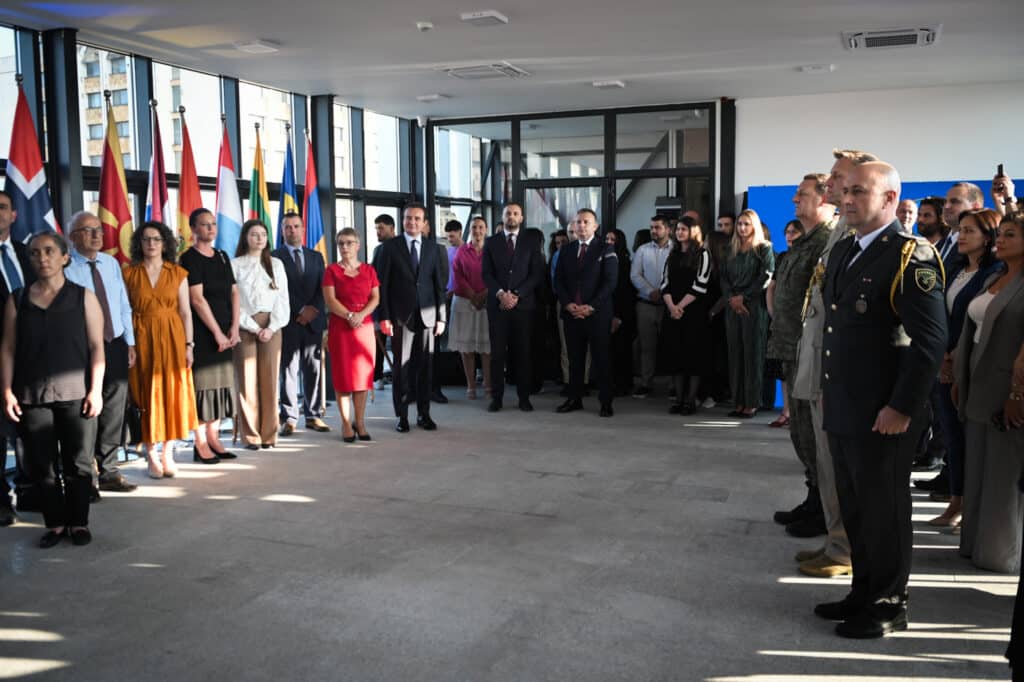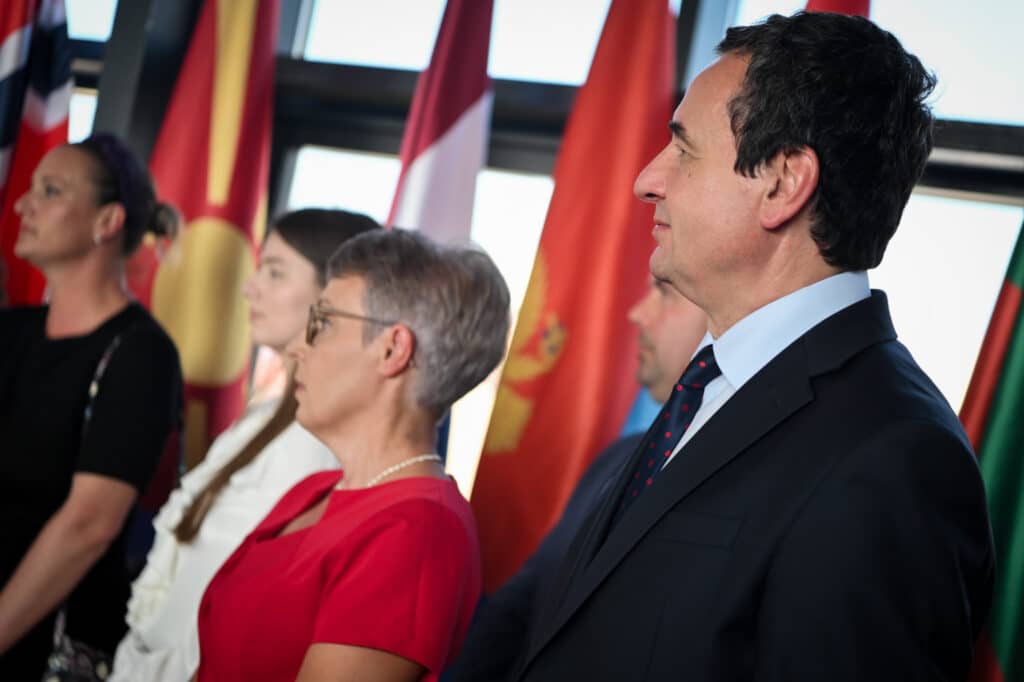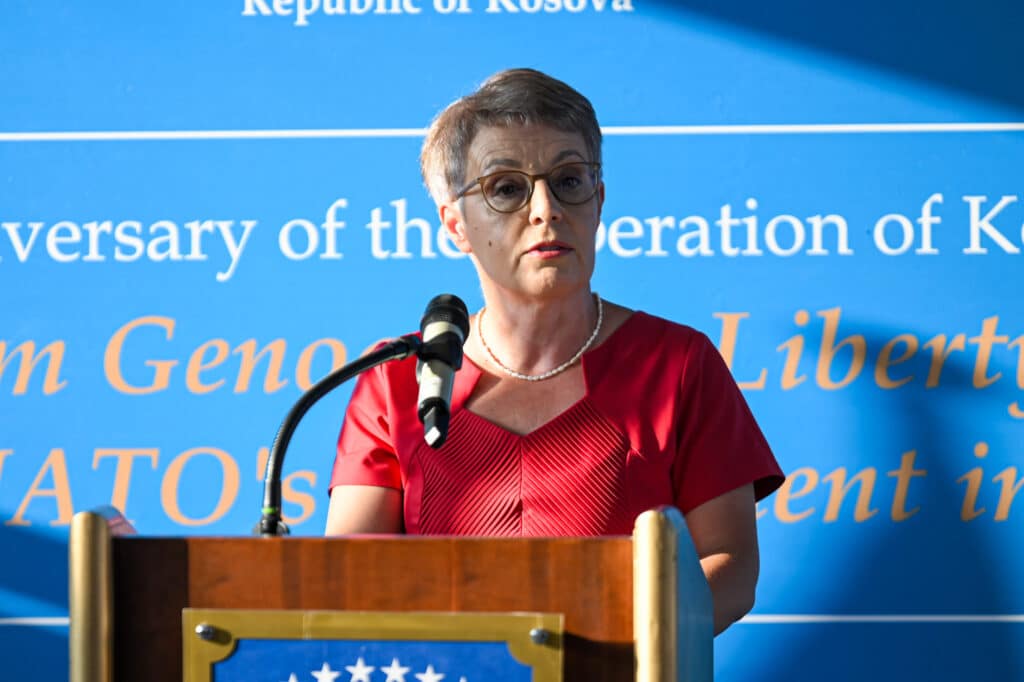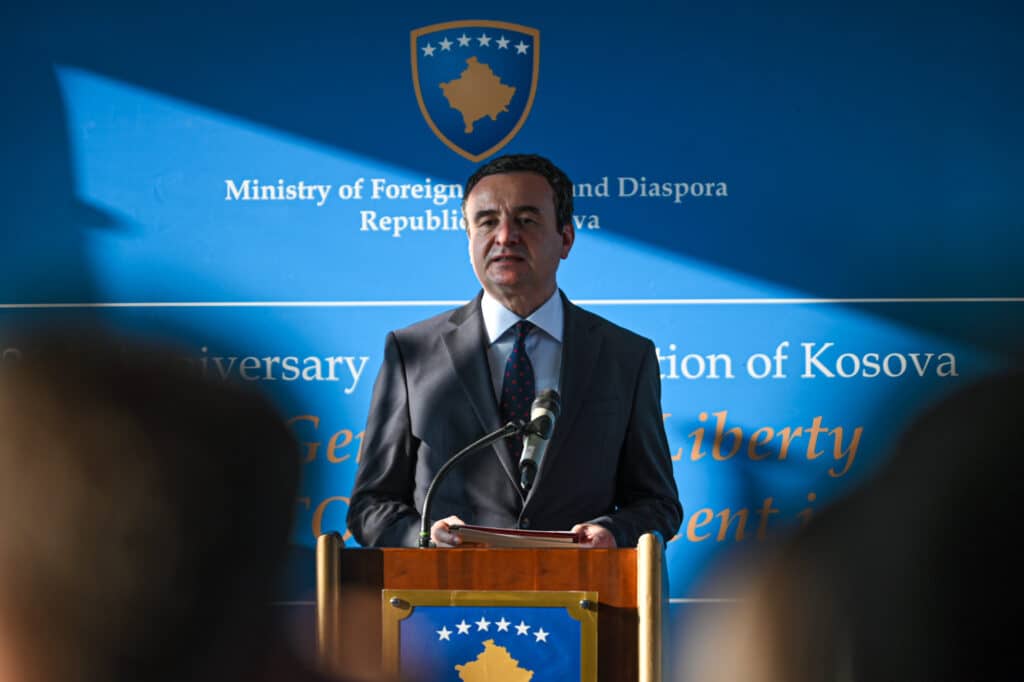Prishtina, 11 June 2025
On the eve of Kosovo Liberation Day, a reception was held today organized by the Ministry of Foreign Affairs and Diaspora, marking 26 years since NATO’s intervention. The event was attended by the Acting Prime Minister of the Republic of Kosovo, Albin Kurti, along with the Deputy Prime Minister and Minister of Foreign Affairs and Diaspora, Donika Gërvalla-Schwarz, and members of the government cabinet.
In his keynote address, the Prime Minister said that in marking this historic day, we have the opportunity to thank all those who contributed to our people’s liberation struggle. He highlighted that 26 years ago, 19 NATO countries united to end the genocide committed by the regime of Milošević, “the butcher of the Balkans,” against Kosovo Albanians.
“The liberation of our people on 12 June 1999 came after 78 days of bombings over Serbia and its military positions in the territory of Kosovo. As decades go by, marking this day and commemorating the martyrs and victims is becoming more, not less, important. This is because, with each passing year, efforts are increasing by Serbia and Russia to rewrite history on one hand—to question the justice and justification of NATO’s intervention—and on the other hand, to misuse it as a precedent for unprovoked aggression against Ukraine,” he said.
The Prime Minister emphasized that during the 1998–1999 period, discrimination and violent oppression against Kosovo’s Albanian population turned into genocide and ethnic cleansing. He noted that hundreds of massacres were committed, 12,000 unarmed civilians were killed, 20,000 women and men were raped, 860,000 people were expelled from the country, and a total of 80% of the population was forcibly removed from their homes.
Marking the 26th anniversary of NATO’s intervention and on the eve of Kosovo Liberation Day, the Prime Minister recalled that the liberation of Kosovo marked the end of a dark chapter in our people’s history and the beginning of a new one, culminating in today’s independent and sovereign Republic. He added that 26 years after liberation and 17 years after the declaration of independence, Kosovo has risen from the ruins of war and genocide to become the most democratic country in the Western Balkans with significant economic achievements.
“Kosovo’s success over the decades since the end of the war is also NATO’s success. Because it was thanks to NATO’s intervention and Kosovo’s liberation that the path was opened for the establishment of our state nine years later,” he further emphasized.
In concluding his speech, the Prime Minister stated that from liberation to eventual membership, NATO and Kosovo are each an inseparable part of the other’s history and future.
Full Speech of Prime Minister Kurti:
Honorable Ms. Donika Gërvalla-Schwarz, Deputy Prime Minister and Minister of Foreign Affairs and Diaspora,
Distinguished representatives of institutions, MPs, Government ministers,
Honorable ambassadors and representatives of diplomatic missions in Kosovo,
Distinguished guests,
It is an honor and pleasure to address you today, on the eve of the 26th anniversary of Liberation Day and the beginning of peace. Every year, in marking this historic day, we have the opportunity to thank all those who contributed from abroad to our people’s liberation struggle. Among the most important of these were the 19 NATO countries, which, 26 years ago, united to end the genocide of the Milošević regime, the so-called “butcher of the Balkans,” against the Albanians of Kosovo.
The liberation of our people on 12 June 1999 came after 78 days of bombing over Serbia and its military positions in Kosovo’s territory. With the passing of the decades, commemorating this day and remembering the martyrs and victims has become more, not less, important. This is because, year after year, the efforts by Serbia and Russia to rewrite history are increasing—on the one hand to question the justice and justification of NATO’s intervention, and on the other hand to misuse it as a precedent for the unprovoked aggression against Ukraine.
We must fight and oppose these efforts to distort history at all costs, with the undeniable facts of that time. Unlike Russia’s illegal war, NATO’s military intervention was both just and necessary.
During the 1998–1999 period, the discrimination and violent oppression against the Albanian population of Kosovo—which had intensified throughout the 1990s—escalated into genocide and ethnic cleansing. Hundreds of massacres were committed, 12,000 unarmed civilians were killed, 20,000 women and men were raped, 860,000 people were expelled from the country, and a total of 80% of the population was displaced from their homes.
Military intervention was the last option, not the first, to end this genocidal campaign, after a series of diplomatic efforts to persuade Milošević to stop his aggression. As U.S. Secretary of State Madeleine Albright reminded us after the authorization of airstrikes—only for the second time in NATO’s history — “We must keep in mind Milošević’s record, his long-standing unwillingness to negotiate seriously, and the accumulated barbarity.” Bombings only began after Milošević and his regime rejected every peaceful solution.
The liberation of Kosovo marked the end of a dark era in our people’s history and the opening of a new chapter, which culminated in the independent and sovereign Republic we have today. Just 26 years after liberation and 17 years after the declaration of independence, Kosovo has emerged from the ruins of war and genocide to become the most democratic country in the Western Balkans with strong economic achievements. Kosovo’s success in the decades after the war is also NATO’s success. Because it was thanks to NATO’s intervention and Kosovo’s liberation that the path to founding our state was opened nine years later.
From the Kosovo Liberation Army to the Kosovo Protection Corps, and now the Kosovo Security Force, these are three phases in more than a quarter-century of the same western, democratic orientation—for peace and security.
Just as NATO has played an essential role in Kosovo’s success, Kosovo is committed to continuously contributing to NATO’s success. Last year, with an overwhelming majority of votes from member states, the Assembly of the Republic of Kosovo became an associate member of the NATO Parliamentary Assembly.
And this month, with the international field exercise Defender Europe 25, hosted by 29 countries in total, Kosovo was among the 18 host countries. However, I am convinced these are only the first steps in Kosovo’s journey toward full membership. From liberation to eventual membership, NATO and Kosovo are each an inseparable part of the other’s history and future.
For this, we are, and will remain, forever grateful.
Thank you!
